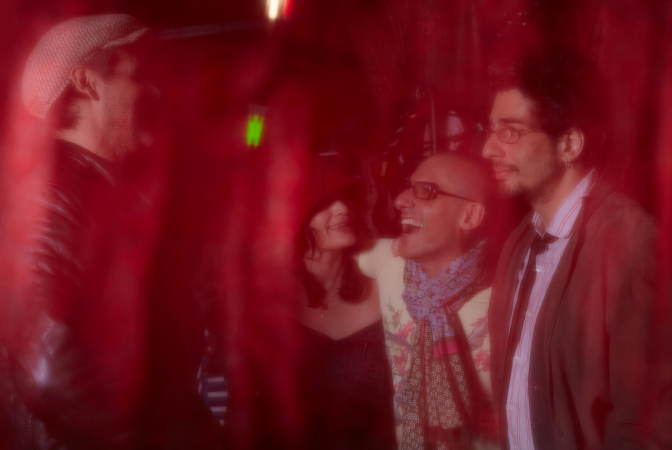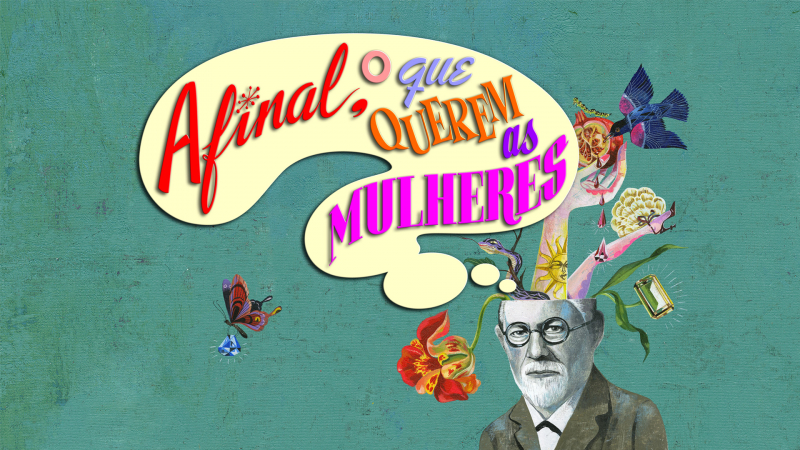I sought a lighter narrative. Perhaps the biggest new comes from the script rather than the visual. And to do so, it was imperative the partnership with João Paulo Cuenca, Cecilia Giannetti and Michel Melamed. Despite its apparent lightness, there is a set of languages behind this work that attracts my attention and makes it somehow undefined. I wouldn’t call it a comedy or a drama.
Clichés [?]
There is an infinity of repetitions in all of us, men and women, which force us to bound every now and then on behalf of the common good, a better world, principles and high morale, to sum up, everything that seems to me rich in terms of dramaturgy. On the other hand, the repetition of such behaviors has become more tragicomic and ridiculous. If I had to summarize Afinal, o Que Querem as Mulheres? I would say: the tragedy of a ridiculous man! This show tells the pathetic trajectory of a man against the objects of his desire, love, affections and a sort of vision of the feminine that seems to devour him constantly.
Pathetic [?]
I do not know how to be funny, and I do not intend to. I do not demand actors to be funny and we do not write scripts with being funny in mind, the result would be catastrophic. Contrariwise, melancholy guides me, perhaps even in the script and certainly saved me more than I can remember. I find Chaplin movies funny while at the same time they bring me down to tears, so you can have an idea of how I am just getting started. This is because I find it difficult to believe moments and narrative of the show must focus on a single genre. I keep asking myself if a good script, either modern or classic, already comes with several layers.
Comedy [?]
I would not call it comedy, but this movement is related to my curiosity for new themes and languages, a certain narrative versatility. I feel each content demands a language. And since I am unable to write a sitcom, here comes my shy attempt. We look to get closer to the language found in social networks, modern media, short dialogue, a dialogue playing the role of network comments, with more acidity, risk, a more direct language, without so many reiterations from television dramaturgy. Despite its apparent lightness, there is a set of languages behind this work that attracts my attention and that, in truth, makes it the whole something undefined in terms of genre.
Opera House [?]
At first I had the idea of working with small narratives, but to do so we needed a bigger cast. Add to that the need to keep on working on actors as co-authors of the creative process, elaborating scenes with a sufficient dose of improvisation. In the specific case of Afinal, o Que Querem as Mulheres? I decided to start with an assumption: this group of women, taking turns in several scenes and in different characters, represents the development of the main woman, Lívia, the primordial love of André. I adopted the same concept for the male characters, which are intended to represent the development of man, that is, of André himself.
Final Laughter [?]
Perhaps my avowed incapacity to translate the feminine [which is indeed so multiple] provided me the courage to create this show, which is not about finding a straight answer out of a hat or defining a genre: this is a comedy! This is a melodrama! But rather to laugh from the pathetic that exists within us [this one indeed seems to be a new genre to me!] and to keep on laughing from my eternal clichés full of formulas and certainties, and all that in the company of my new script friends, João Paulo Cuenca, Cecilia Giannetti and Michel Melamed, all sharing shabby dreams just as much as I do.
Thus, the final laughter would be this: the result of finding the emptiness that has become any official model – whether it is amorous or not. This finding gave the André the possibility of not becoming crystallized, reinventing his days with the strength to keep on loving Life and Love. André will win against himself and with inspiration from Simone de Beauvoir he is likely to tell us: “to will oneself free is also to will others free”.



